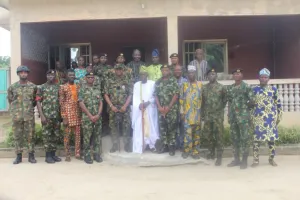Majority of the indigenous oil tankers are not seaworthy and this accounts for why many of them do not get allocations to lift petroleum products, so says industry sources.
Shocked by the number of ships that are appear on Nigerian Ports Authority’s daily records of berthing meetings, but which never gets to the jetties, Shipping Position Weekly went in search of insider explanations.
On daily basis, Nigeria ships queue outside Lagos breakwaters waiting for available patronage that eventually goes to foreign flagged-vessel in clear violation of the provision of the Cabotage Act.
Although, most players in the lucrative coastal freighting of petroleum products refused to speak on the state of these ships, our correspondent learnt that the ships are actually listed by their agents as coming in from either the coastal towns of Warri or Port Harcourt or from outside the country.
“They are mostly unacceptable for mid stream discharge by the bigger ships, and these things happen after NPOA would have been informed that the ships are coming. The agents don’t report the rejection to NPA immediately”. “This is one of the reasons why the ships don’t come in even after they had been listed as being expected at the jetties”, our source explained.
But one stakeholder who eventually volunteered to talk to our correspondent corroborated our findings. Mr. Okpithe S.E who works with one of the tank farms; Techno Oil explained that following the nomination of vessels by the importer to bring in petroleum products, the next duty lies with the Nigerian Ports Authority to take the listing of the tanker vessel as to the date of arrival and kind of product. “But, on getting to the point of loading, many of these tankers are rated low and incapable of voyage”, he stressed
“The reason why we don’t get to see expected tankers to bring in products to the jetties as stated is because majority of them are delayed at the point of loading or totally rejected by the mother vessel for not meeting required standards and in a situation like this, the tanker have to be substituted for another probably a foreign one”, he disclosed further.
According to him, the process of substitution will also have to go through another process of paper confirmations by the NPA before it is allowed to sail in.
He consequently appealed to government to strengthen its partnership with indigenous vessel owners by committing more funds to upgrade the standards of the vessels, because according to him, Nigeria still depends largely on importation of petroleum products.
















Discussion about this post